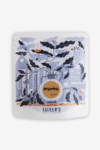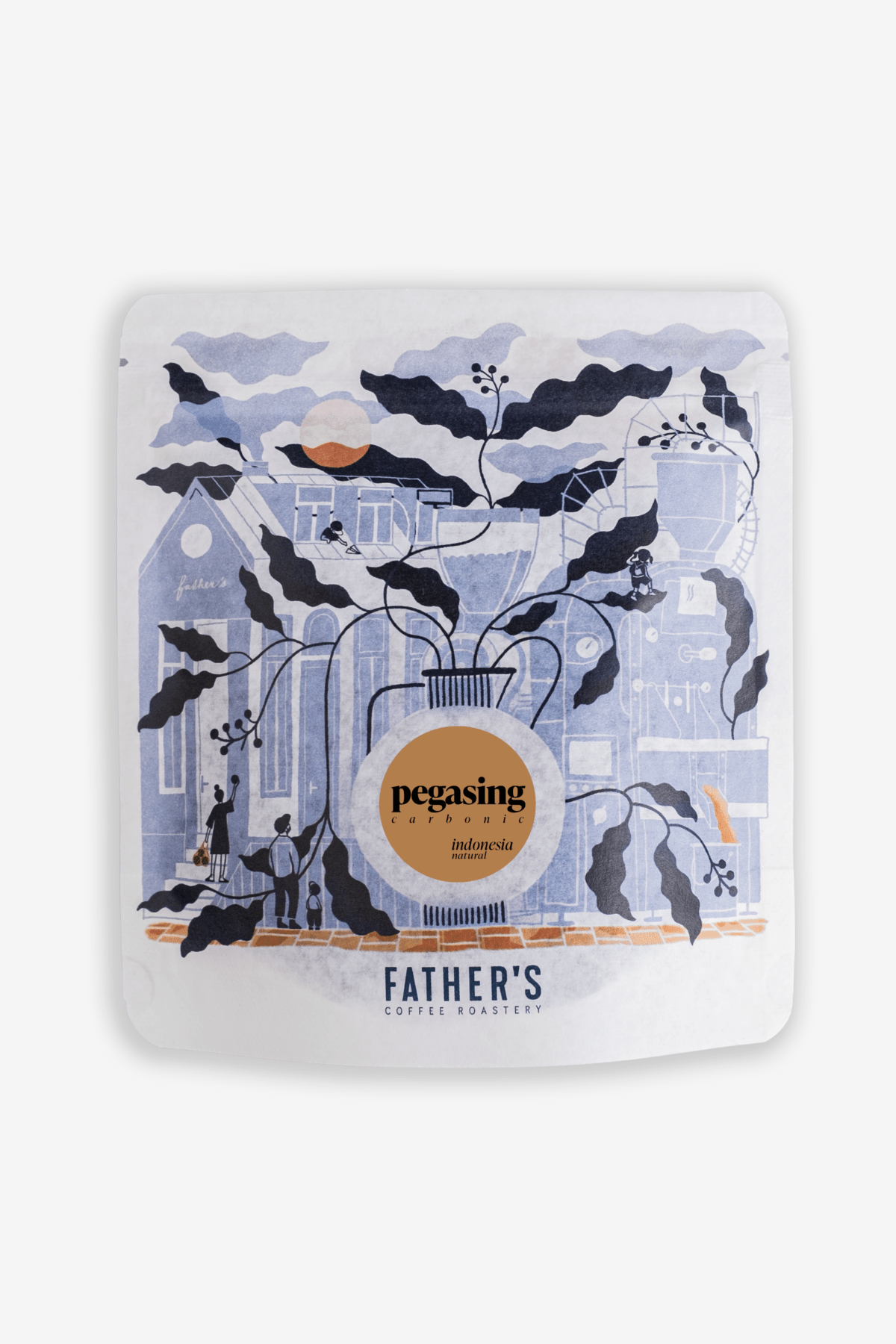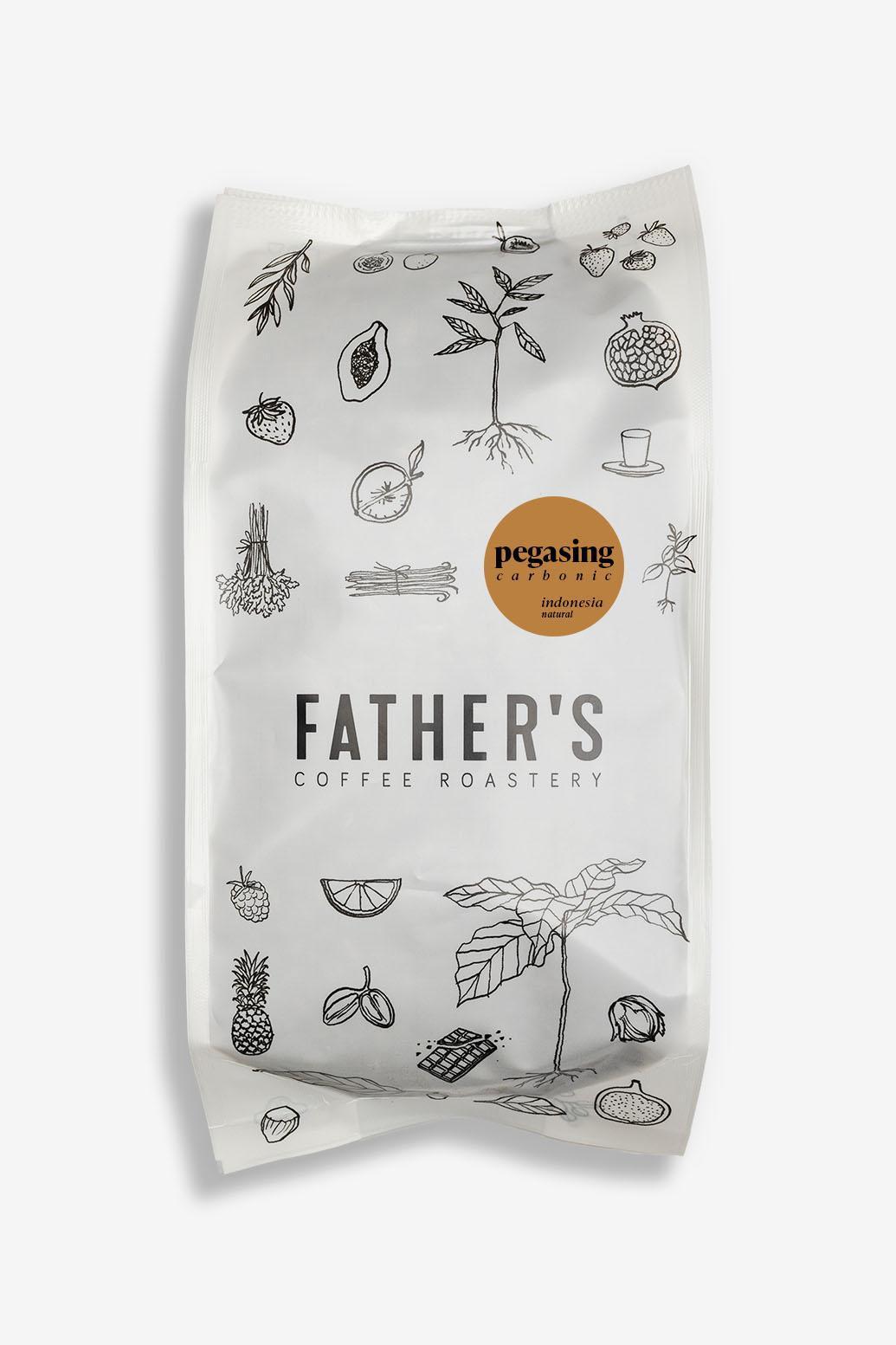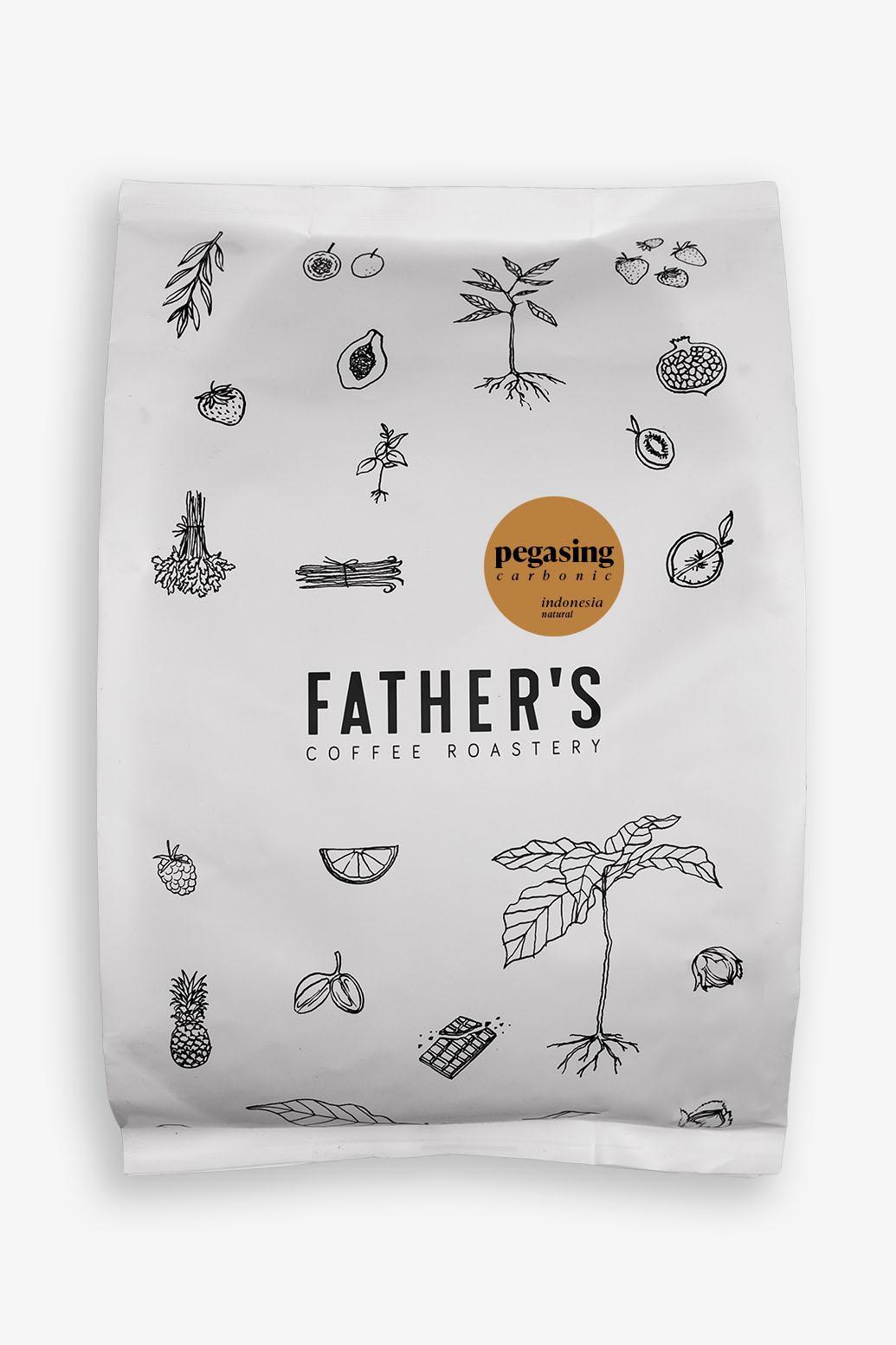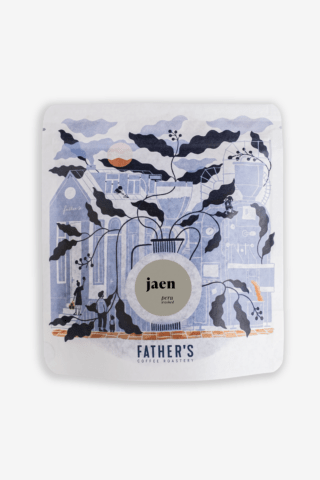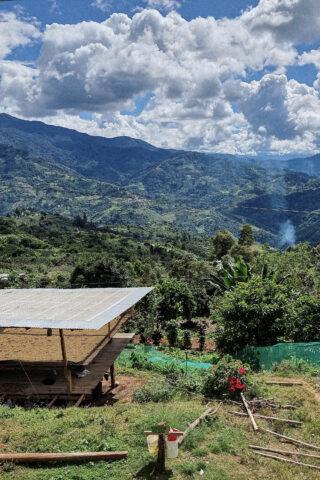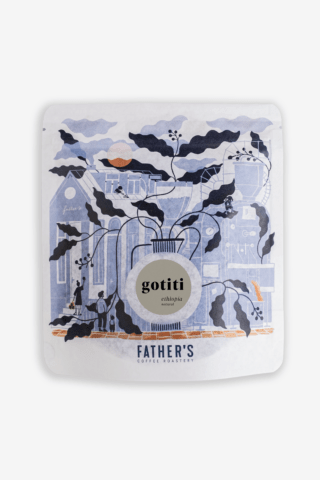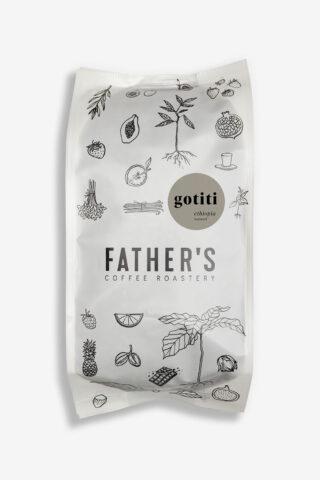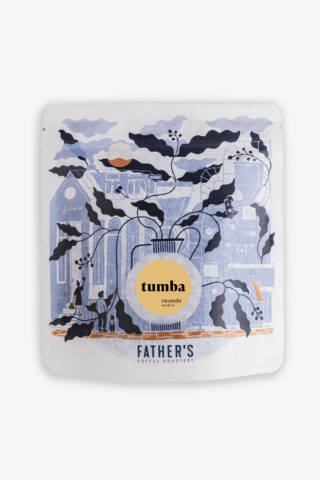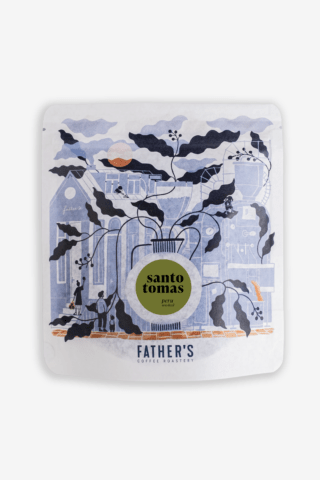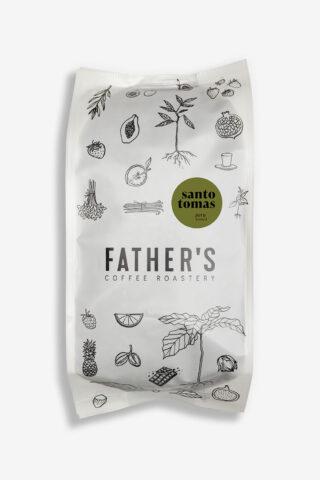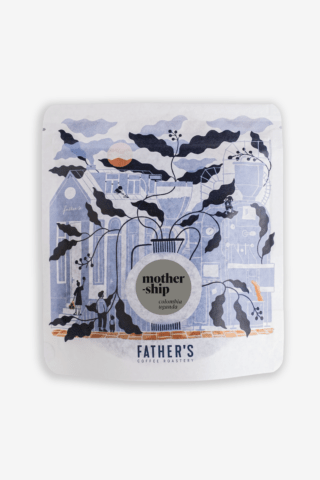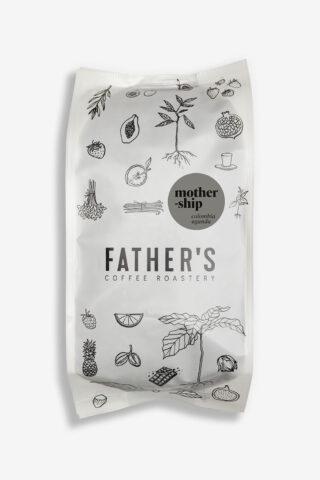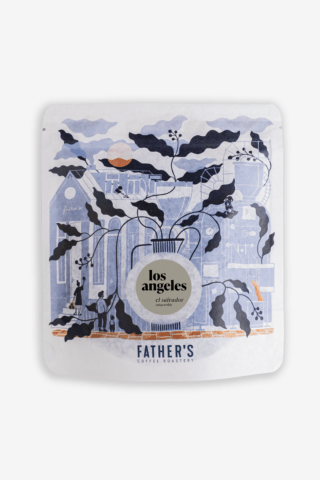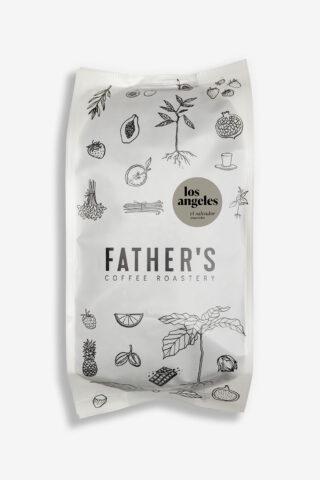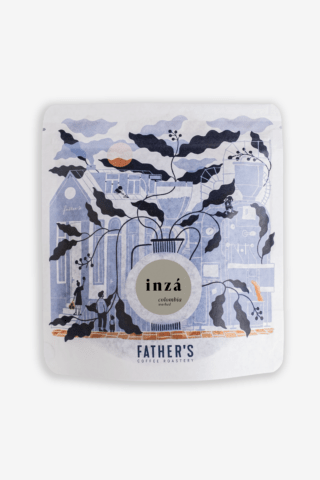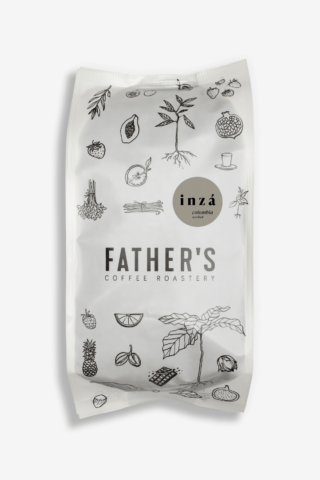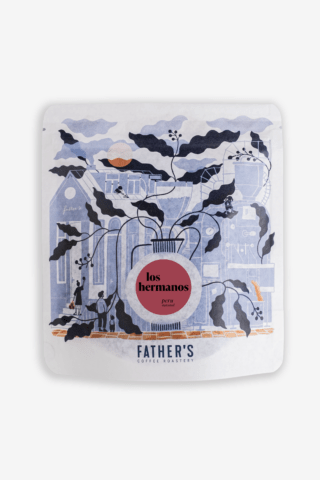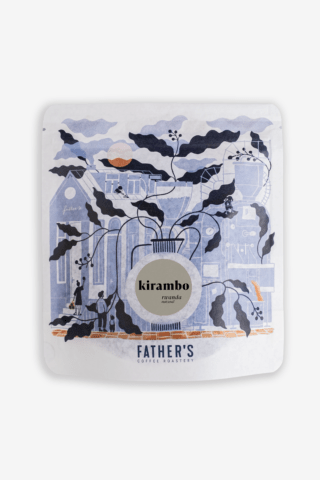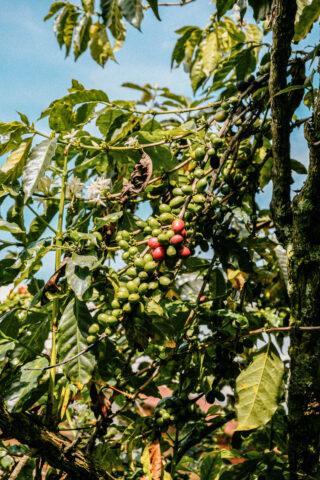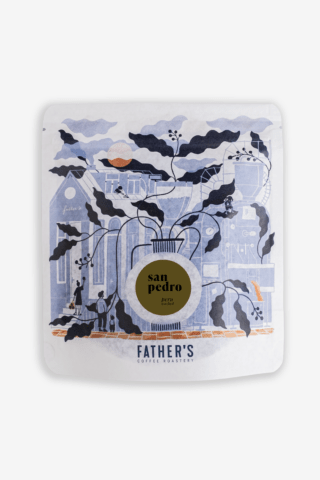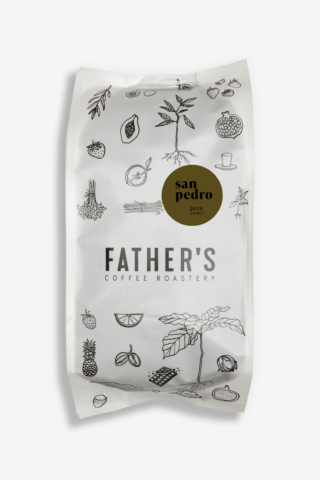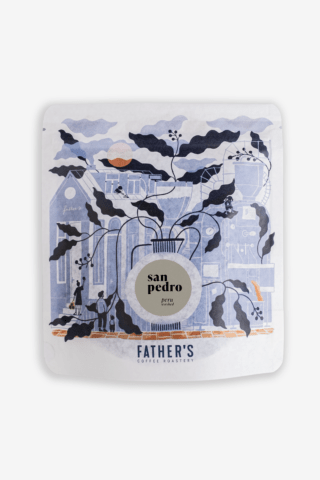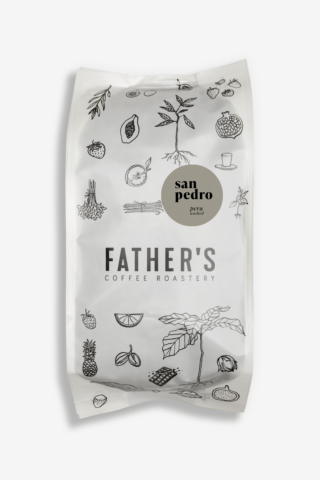Indonesia – Pegasing carbonic
€ 20.16 – € 121.10
Country: Indonesia
Region: Pegasing
Processing station: Team Pegasing
Altitude: 1300-1500 masl
Variety: Tim Tim & Gayo 1
Processing: carbonic maceration
Taste profile: cocoa, apricots, lime
Carbonic maceration is just one of the ten processing methods carried out by the producer Hendra of Pegasing station. The beans were grown at high altitudes by the best farmers in the area, fermented for 70-80 hours without air and with the help of carbon dioxide, and then dried on raised beds for 20 days.
PRODUCER
Hendra and his family’s farm and processing station is an island of experimental processing in a sea of conventional washed coffee typical of the Pegasing area. Hendra’s father, Hamdan, moved to the area in 2006, bought land, and started growing coffee. His son Hendra soon became enthusiastic about coffee. He began experimenting with processing methods, studying literature, and seeking advice from other Indonesian farmers who had moved away from the traditional washed method. The family invested heavily in the farm, especially in equipment for different types of processing: a small wet mill with two pulpers, gravity washing channels, and several elevated presses in large poly tunnels for drying the coffee. They also established a nursery for the Abyssinia variety, the first variety planted when coffee entered the Indonesian market.
PROCESSING
Hendra processes coffee in up to ten different ways and never stops experimenting. How coffee is processed determines the weather and the client’s demand: Hendra sells most of his crop to roasters directly in Indonesia, especially in Jakarta. His processing station produces up to 40 tonnes of coffee a year, which he buys from 70 farmers in the area. Hendra motivates them to sell by rewarding them for a good harvest, a travel bonus if the farmer is from far away, and a premium for growing micro lots. Hendra’s washed coffee is sourced from the best growers who harvest excellent coffee cherries and reside at the highest altitudes. Firstly, The beans ferment in plastic fermentation tanks, where CO2 (carbon dioxide) is added to the water to displace oxygen. The coffee cherries are then fermented for 70-80 hours and then dried on raised beds in a plastic tunnel with controlled temperature for 20-25 days, and the beans are rotated regularly to dry evenly. Afterward, any immature or defective beans are removed by hand to ensure that they meet the standards of specialty coffee.
VARIETY
Tim Tim is the Indonesian name for the variety known as Hybrido de Timor. It is a natural cross between Robusta and Arabica, discovered on a farm on the island of Timor in 1917. The variety is now widely cultivated around the world because of its disease resistance and is used as the genetic basis for projects developing resistant hybrid coffee varieties. Gayo 1 is a variety the Indonesian Ministry of Agriculture officially introduced in 2010 as disease resistant. It is not entirely clear what the basis of the variety is, but its genetics suggest that it may also be a descendant of Hybrido de Timor.
We work with several couriers worldwide, the table HERE specify the conditions for each country.
If your country is not available please send us an email to info@fathers.cz.
Related Products
Country: Peru
Region: Jaén, Cajamarca
Farm: Jaén
Altitude: 1750 – 2000 MASL
Variety: Catuai, Pache, Caturra
Processing: Washed
Flavor Profile: Milk chocolate with nuts, hibiscus, green apple
Jaén brings together eight farmers from the Cajamarca region of northern Peru, who, thanks to meticulous processing and ideal growing conditions, produce exceptional specialty coffee. This region is also a hub for innovation in transparency and sustainability. With careful processing and a strong focus on quality, their harvest transforms into the coffee we have roasted for you.
Country: Ethiopia
Region: Wegida,Yirgacheffe
Farm: Gotiti
Producer: Eptah Speciality Coffee
Altitude: 2150 m.a.s.l.
Variety: Heirloom
Processing: natural
Taste profile: Blueberries, milk chocolate, sour cream
Country: Rwanda
Region: Rulindo district, Northern Province
Altitude: 1776 masl
Variety: Red Bourbon
Processing: washed
Taste profile: pineapple juice, dried physalis, nutmeg
In the heart of Africa, in the northern part of Rwanda, lies the Tumba processing station. The road from Kigali, the capital of Rwanda, to Tumba winds high up into the mountains, revealing a breathtaking landscape of vivid green hills dotted with farms as far as the eye can see. Hundreds of dedicated smallholder farmers bring ripe coffee cherries here for processing. The coffee they’ve harvested for us tastes like spicy pineapple juice.
Country: Peru
Location: Santo Tomas, Cutervo, Cajamarca
Owner: Elmer and Veronica Mego
Altitude: 1700 – 1900 m.a.s.l.
Variety: Catuai, Catimor
Processing: washed
Taste profile: Fruit tea, plums, milk chocolate
Full creamy body, milk chocolate, and floral aroma. You can find all this in a cup of our espresso blend, Mother Ship.
It will be a pleasure to work with, whether in a café or at home. It serves as an excellent base for your milk-based drinks while also satisfying any fan of pure espresso.
Origin: Uganda
Region: Upper Bukyabo
Processing station: Coffee Gardens
Altitude: 1800–2200 m.a.s.l.
Variety: SL14, SL28, Nyasaland
Processing: Washed
Origin: Colombia
Region: Cafe Agario, Ortega, Tolima
Processing station: Suukula – Asorcafe
Altitude: 1830 m.a.s.l.
Variety: Caturra, Castillo, Colombia
Processing: Washed
Flavor profile: Full creamy body, milk chocolate, and floral aroma.
Country: El Salvador
Region: Ahuachapán, Los Naranjos
Farm / Producer: Los Angeles / Los Naranjos
Altitude: 1750 m.a.s.l.
Variety: Pacamara
Processing: Anaerobic Natural
Taste profile: Pancakes with raspberries and maple syrup
Discover the exceptional Pacamara from a Los Angeles farm in El Salvador. It is processed using anaerobic fermentation, which gives it a unique flavor profile—sweet notes of pancakes with raspberries and maple syrup. Lovingly cultivated by the Velásquez family, this coffee combines the highest quality, environmental sustainability, and social impact.
Country: Colombia
Region: Inzá, Cauca
Processing station: Regional Inzá
Altitude: 1500 – 2100 m.a.s.l.
Processing: washed
Variety: mix of varieties
Taste profile: rose hip tea, lime, tangerine fresh
The municipality of Inzá, in the province of Cauca, is situated high on the Colombian plateau known as the ‘Macizo Colombiano.’ Inzá is known for its rich indigenous history and great coffee.
Country: Peru
Region: El Palto, Bellavista
Farm: Los Hermanos Guerreros
Altitude: 1800 masl
Variety: Catuai, Bourbon
Processing: Natural
Taste profile: pear tart, kefir, star anise, cocoa
Country: Rwanda
Region: Nyamasheke District, Western Province
Farm/producer: Kirambo 123
Altitude: 1,545 m.a.s.l.
Variety: Red Bourbon
Processing: Natural
Taste profile: Yuzu, cherries, milk chocolate, cider
Red Bourbon from the Kirambo farm in Rwanda undergoes natural processing and slow drying on African raised beds. This method enhances its pronounced sweetness and rich fruitiness.
Expect notes of yuzu, cherries, milk chocolate, and cider in the cup. It is full-bodied, juicy, and perfectly balanced.
Country: Peru
Region: San Pedro, Tabaconas
Farm: San Pedro
Altitude: 1,700–1,900 MASL
Variety: Caturra
Processing: Washed
Flavor Profile: Hazelnut, Plums, Rosehip Tea
The Caturra from the San Pedro farm in Peru brings together two small-scale farmers, Carmela Mondragón Salazar and Juan Manchay Santos, who cultivate this variety on their 1.5-hectare farms in the Tabaconas region. This area has immense potential for growing specialty coffee, thanks to its ideal conditions, the farmers’ meticulous work, and their dedication to continuously improving production quality. This Caturra is characterized by delicate notes of hazelnut, plums, and rosehip tea.
Country: Peru
Region: San Pedro, Tabaconas
Farm: San Pedro
Altitude: 1,700–1,900 MASL
Variety: Caturra
Processing: Washed
Flavor Profile: Hazelnut, Plums, Rosehip Tea
The Caturra from the San Pedro farm in Peru brings together two small-scale farmers, Carmela Mondragón Salazar and Juan Manchay Santos, who cultivate this variety on their 1.5-hectare farms in the Tabaconas region. This area has immense potential for growing specialty coffee, thanks to its ideal conditions, the farmers’ meticulous work, and their dedication to continuously improving production quality. This Caturra is characterized by delicate notes of hazelnut, plums, and rosehip tea.
